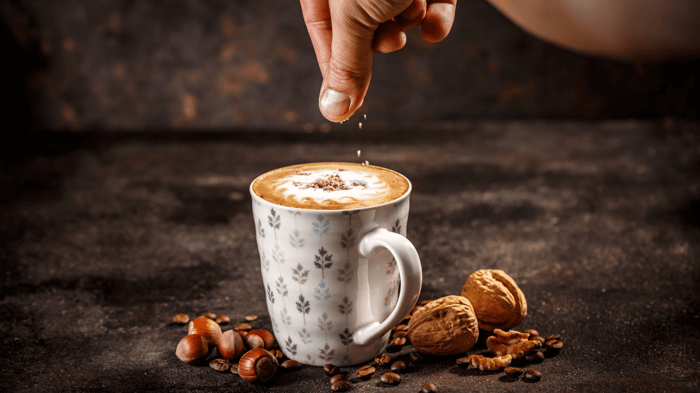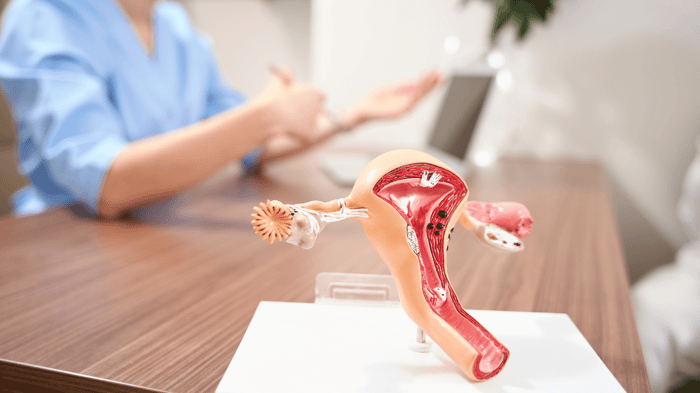Table of Contents
For many of us, alcohol and caffeine feel like constants in everyday life. A glass of wine to unwind after a long day. A latte (or two… or three) to get through the morning. These habits might feel harmless—even comforting. But here’s the truth: what you drink can have a ripple effect on your vaginal health, your reproductive system, and even your confidence in the bedroom.
This doesn’t mean you need to abandon every cup of coffee or turn down every cocktail. Instead, it’s about understanding how alcohol and caffeine influence your body so you can make empowered choices that support intimacy, comfort, and long-term wellness.
And when lifestyle changes aren’t enough? That’s where natural support like She Juicy, our plant-based vaginal moisture supplement, comes in—helping you feel juicy, comfortable, and confident again, without hormones, without lube, and without shame.
How Alcohol Affects Vaginal Health
Alcohol affects the body in multiple ways—from hormone disruption to immune response. And while most conversations focus on liver function or hangovers, its impact on vaginal and reproductive health often flies under the radar.
The Vaginal Microbiome
Your vagina is home to a delicate ecosystem of bacteria, with Lactobacillus playing the superhero role. These beneficial bacteria keep the vaginal pH acidic, making it harder for harmful organisms to thrive. Alcohol can throw this balance off in two ways:
Lowering estrogen levels: Less estrogen means less support for Lactobacillus.
Weakening immunity: Alcohol makes it harder for immune cells to fight invaders.
The result? An environment where yeast, BV-causing bacteria, and other unwelcome guests can move in.
Alcohol and BV
Bacterial vaginosis (BV) is one of the most common vaginal imbalances—and alcohol can increase the risk. Women who drink heavily or frequently are more likely to report BV symptoms, like odor and unusual discharge. The risk rises even higher when alcohol use is paired with smoking or high caffeine intake.
Hormones and Cycles
Alcohol disrupts estrogen and progesterone, both critical for menstrual cycles. That disruption can cause irregular bleeding, ovulation delays, or even skipped cycles. Over time, these hormonal shifts can impact fertility.
Sexual Health and Behavior
Alcohol doesn’t just change your biology—it can also change behavior. Binge drinking is strongly associated with unprotected sex and higher STI risk. And since alcohol can dull the body’s signals, it may delay noticing infection symptoms until they’ve worsened.
How Caffeine Influences Vaginal and Reproductive Health
For many women, caffeine is a daily lifeline. But like alcohol, it affects more than energy.
Hormonal Shifts
Caffeine stimulates cortisol and adrenaline. In small doses, that’s fine. In large doses, it can interfere with estrogen and progesterone—hormones that regulate cycles, fertility, and vaginal lubrication.
Some studies link high caffeine intake to luteal phase changes, which can cause irregular cycles and reduced vaginal secretions. For those already prone to dryness, caffeine may add fuel to the fire.
Caffeine and Fertility
The research is mixed, but some evidence shows that heavy caffeine intake can:
Increase time to conception.
Raise miscarriage risk at levels above 300 mg/day (about 3 cups of coffee).
Reduce IVF implantation success.
Moderation seems safe, but high daily intake could tip the balance.
Vaginal Comfort
Caffeine is a mild diuretic. More bathroom trips mean more fluid loss, and in sensitive women, this may contribute to dryness or irritation. Pair that with its subtle effects on hormone levels, and you’ve got a potential contributor to discomfort.
Alcohol, Caffeine, and Fertility: The Bigger Picture
When planning for pregnancy—naturally or with assisted reproductive technology—alcohol and caffeine matter for both partners.
Alcohol: Reduces estrogen and progesterone, lowers implantation success, and in men, cuts testosterone and sperm count.
Caffeine: Linked to reduced fecundability and lower IVF success at high intake.
Both combined: Delay conception and reduce embryo quality.
For couples, the safest path is moderation: limiting alcohol, keeping caffeine under 200 mg/day, and supporting the body with hydration and nutrient-rich foods.
Where She Juicy Fits In
Here’s the truth: alcohol and caffeine aren’t going anywhere. They’re woven into social rituals, daily routines, and even comfort habits. But when they start to show up as dryness, discomfort, or cycle changes, you don’t have to just “deal with it.”
That’s where She Juicy, our plant-based vaginal moisture supplement, steps in. Designed for women who are ready to feel like themselves again, She Juicy™ helps you:
Get wet naturally: Supports the vaginal mucosa, the tissue responsible for your body’s natural lubrication.
Restore comfort and confidence: Say goodbye to awkward dryness or discomfort in intimacy.
Stay hormone-free: No estrogen, no synthetic hormones—just 100% natural, plant-based support.
Choose cruelty-free wellness: Vegan, doctor-trusted, and made with care in the USA.
Whether you’re experiencing dryness due to lifestyle choices, stress, menopause, or simply because life happens, She Juicy helps restore balance. Think of it as the gentle reset button for your V—because pleasure, confidence, and comfort aren’t optional, they’re essential.
Final Thoughts
Your daily choices—like what’s in your glass or mug—really can shape your intimate health. Alcohol and caffeine may be part of life, but their effects on hormones, fertility, and vaginal comfort are too important to ignore.
The good news? You don’t have to give them up completely. By choosing moderation, staying hydrated, and listening to your body, you can protect your health and feel more at ease in your own skin.
And when you want a little extra support, She Juicy™ is here to help you feel juicy again, naturally. No hormones. No shame. Just the comfort, confidence, and pleasure you deserve.
Explore She Juicy today and discover how it can help you balance lifestyle choices with vaginal wellness—so you can stay confident, connected, and in control.
FAQs
Can alcohol cause unusual discharge?
Not directly. But alcohol weakens immunity and disrupts vaginal flora, which can allow infections like yeast or BV to develop. Those infections are what often cause changes in discharge.
Does alcohol make periods irregular?
Yes. Alcohol alters estrogen and progesterone, which can delay ovulation, change bleeding patterns, or make cycles unpredictable. Over time, this can affect fertility.
How does caffeine affect vaginal health?
High caffeine intake can influence hormone activity, potentially reducing lubrication or altering cycles. As a diuretic, it may also contribute to dryness or irritation in sensitive women.
Is there a connection between alcohol and BV?
Yes. Alcohol compromises protective Lactobacillus bacteria and weakens immune defenses, both of which increase BV risk. Studies consistently link regular alcohol use to higher BV rates.
Can caffeine make vaginal dryness worse?
It can. While it doesn’t directly cause dryness, caffeine’s hormonal impact and fluid-depleting effect may worsen dryness for some women. Tracking your intake and symptoms can help you spot patterns.
What can I do to balance alcohol, caffeine, and vaginal health?
Focus on moderation: limit alcohol, keep caffeine under 200 mg/day, stay hydrated, and support your body with natural solutions like She Juicy™ to restore balance.










